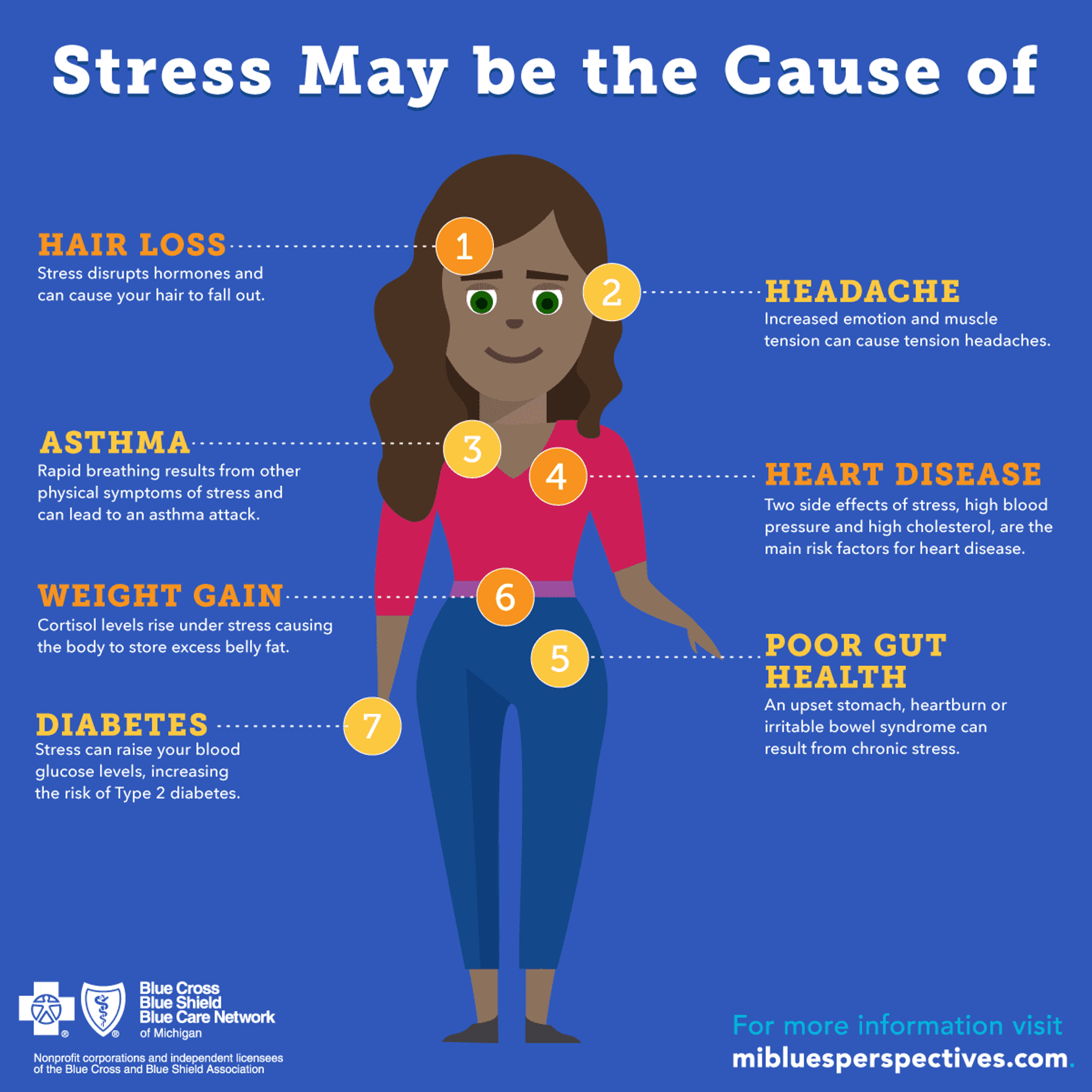Signs You’re Suffering from Physical Symptoms of Stress

Blue Daily
| 3 min read

For most people, stress is just a part of life. Not only do chronic stress and symptoms of stress lead to anxiety, exhaustion and burnout, it can also cause many other physical health issues. Below is a list of some of the physical symptoms of stress.

Chronic stress symptoms
Hair loss
Stress doesn’t just make you want to pull your hair out, it can cause your hair to fall out on its own, too! Stress disrupts hormone production in the body, which can switch some active hair follicles into resting ones. The result: hair that falls out when washed or brushed.
Headache
People who have daily stressors can experience something known as a tension headache. This is when it feels like a dull ache or pressure is spreading across the forehead and temples. If you notice you are getting a headache during stressful circumstances, take a step back and give yourself a minute to calm down and breathe.
Asthma
For people with asthma, stress can worsen symptoms. That’s because the body enters a fight or flight state where blood pressure increases and the body releases adrenaline—two things that can lead to rapid breathing and trigger an asthma attack.
Heart disease
Two of the main risk factors for cardiovascular disease — high blood pressure and high cholesterol — are linked to stress, according to the American Heart Association. The more regularly you feel stressed, the more of an impact it has on long-term heart health.
Weight gain
Chronic stress causes the body to go into a heightened state of awareness, which also causes an increase in cortisol levels. Recent studies have shown that in women, cortisol can cause the body to store excess belly fat. Too much cortisol can also increase insulin levels, which leads the body to crave fatty, sugary foods because it thinks it’s in a fight-or-flight situation and wants a quick energy source.
Poor gut health
Various studies have found chronic stress can lead to gut health complications like heartburn and irritable bowel syndrome. In fact, a study found 12,653 people with Gastroesophageal Reflux Disease (GERD) reported chronic stress as a lifestyle factor affecting their condition. Even more alarming, researchers have found gut bacteria may influence mental health. This is a chain reaction of sorts – stress causes poor gut health, and poor gut health causes poor mental health. This can include conditions like anxiety and depression.
Diabetes
The hormones released when stressed can raise blood glucose levels. Unfortunately, if you have diabetes, your body has trouble converting the abundance of glucose into usable energy. This ultimately causes a buildup in the blood stream and makes blood glucose levels tougher to control.
Photo Credit: Getty Images
Related:





